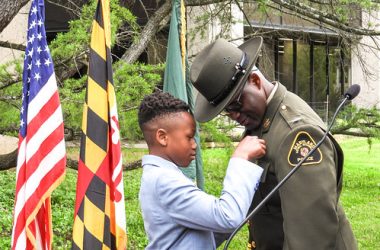Maryland crime victims’ advocates are applauding the decision by a Baltimore judge to allow the release of a report outlining 80 years of recorded child sexual abuse within the religious organizations in Archdiocese of Baltimore.
On February 24, Judge Robert Taylor, Jr., Associate Judge for the Circuit Court for Baltimore County, issued an order allowing for release of the report prepared by the Maryland Office of the Attorney General (OAG) in conjunction with a grand jury investigation on the matter.
That 469-page report will be released with the names of individuals blocked out for now, the order says. The OAG will work with the Archdiocese to contact individuals named in the report to notify them that the full report, with names listed, could be released in the future.
Judge Taylor, in his decision, said that the length of time and scope of abuse detailed in the report make it necessary to release it in the interest of justice.
In 2019, Maryland OAG requested a grand jury subpoena the Archdiocese for documents related to allegations of sexual abuse, and the church’s response to those allegations.
This led to the release of documents dating back to 1940, including “hundreds of thousands of pages” of records. Final disclosure was made in July 2022.
A report from those records “identifies 115 priests that were prosecuted for sex abuse” or were “credibly accused” of abuse. Another 43 clergy were accused but are not named in the records.
The Maryland Crime Victims’ Rights Center estimates that the report refers to over 600 victims of sexual abuse by the clergy members.
One criminal indictment resulted from the grand jury investigation.
“The hundreds of victims of clerical abuse over the years have suffered from decades of systemic injustice. As the State has argued in its pleadings. The passage of time, the changes in criminal laws over the years, and the concerted efforts of various individuals within the Archdiocese have effectively ensured that the perpetrators of abuse identified in the Report will escape any form of formal criminal sanction,” wrote Judge Taylor.
“The same can be said for the individuals who went to sometimes extraordinary lengths to protect abusers, bury accusations, and essentially enable the rape and torture of children and young adults for many years. All of this constitutes an injustice. The only form of justice that may now be available is a public reckoning – a disclosure of the facts as found by the OAG and contained in its report,” Judge Taylor wrote. “Keeping this Report from the public is an injustice.”
“The grand jury has finished its work, which greatly reduces the need for secrecy, and as no new indictments have been issued, there is no risk of an accused individual fleeing justice, or an affected witness being subject to pressure,” the judge wrote.
Judge Taylor and the Maryland Crime Victims’ Resource Center noted that there are efforts going on now, during the Maryland General Assembly’s legislative session, to change Maryland laws regarding statute of limitations to pursue justice in child sexual abuse cases.
“Moreover, the Maryland General Assembly is meeting now and is considering changes to state laws that might open the door to some belated paths to civil or criminal litigation surrounding the events documented in the Report. Any further delay in its release would prevent the General Assembly from considering this 469-page trove of information about this topic,” wrote Judge Taylor.




